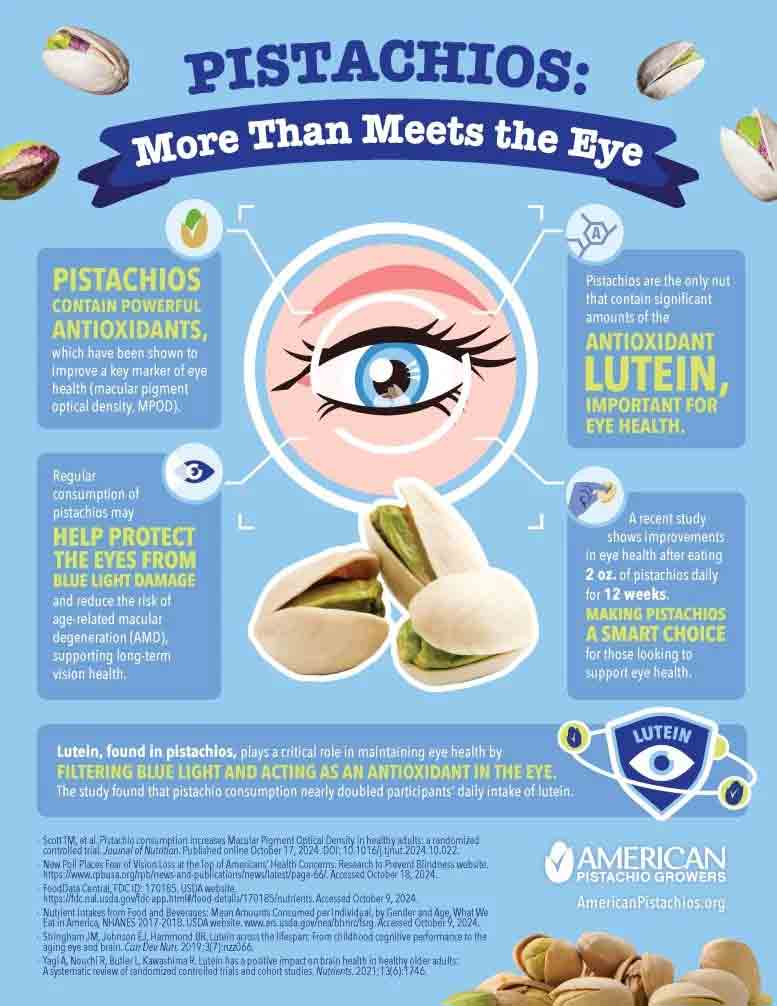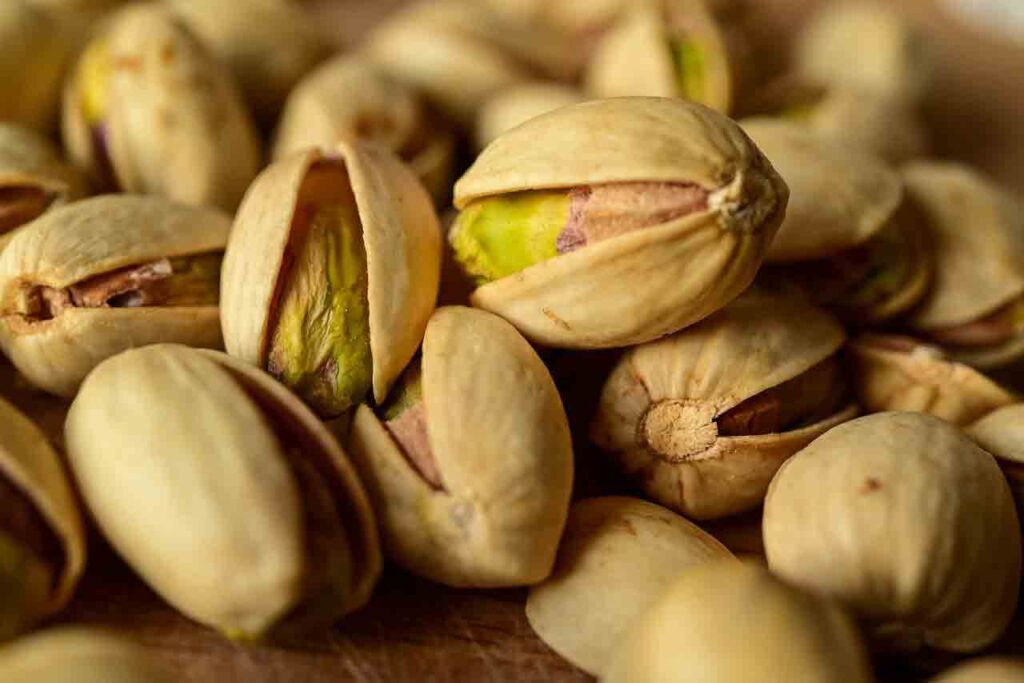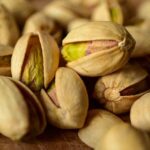Pistachios: A Natural Pathway to Enhanced Eye Health in Just Six Weeks
Emerging evidence highlights pistachios as a potent dietary ally in eye health, enhancing lutein levels and protecting against age-induced deterioration, with added support for cognitive wellness.
A recent study by the Friedman School of Nutrition Science and Policy at Tufts University unveils that daily pistachio intake may significantly bolster eye health. This benefit is attributed to an increase in macular pigment optical density (MPOD), facilitated by lutein—a plant-based pigment known for shielding the eyes from harmful blue light and preventing age-related damage.
The study’s randomized controlled trial revealed that incorporating two ounces (57 grams) of pistachios daily over a 12-week period led to notable MPOD elevation among healthy middle-aged and older adults, surpassing results observed in those on a regular diet alone. MPOD serves as a vital marker for retinal health, offering protective benefits linked to a decreased likelihood of age-related macular degeneration (AMD)—a primary cause of vision loss in senior adults.
These findings resonate strongly in the context of a recent American Foundation for the Blind survey, which identifies vision impairment as one of Americans’ most feared health issues.
Core Insights
- Increased MPOD: Participants saw a significant MPOD rise within six weeks, with effects continuing over the 12-week study duration.
- Exclusive Lutein Source: As the only nut with a measurable lutein content, pistachios deliver an essential antioxidant that guards against ocular damage.
- AMD Risk Reduction: Findings suggest that regular pistachio consumption may offer a straightforward dietary approach to mitigate AMD risk.
“Pistachios are not only nutrient-dense but appear to offer considerable eye health advantages,” commented Dr. Tammy Scott, the study’s lead author and an expert in neuropsychology. “This holds especially true as we age, when the risk of visual deterioration rises.”

Lutein’s Unique Contribution to Eye Health: Pistachios A Natural Pathway to Enhanced Eye Health in Just Six Weeks
The lutein in pistachios supports eye health by filtering blue light and serving as an antioxidant in the ocular environment. The study revealed that daily pistachio consumption nearly doubled participants’ typical lutein intake, which is notably low in many American diets, resulting in a marked elevation of lutein levels in the blood.
Dr. Scott notes that participants with low baseline lutein intake experienced rapid increases in blood lutein levels with just two ounces of pistachios daily over a six-week span. “A handful of pistachios can notably elevate lutein intake, which plays a key role in safeguarding vision,” she adds. The healthy fats in pistachios may further aid in the absorption of lutein, enhancing its impact on the body. Each daily dose in the study offered approximately 1.6 mg of lutein—sufficient to double the average intake of this essential xanthophyll in U.S. adults.
Lutein’s Broader Health Potential
Lutein’s benefits extend beyond ocular health, showing promise for cognitive enhancement. “Lutein crosses the blood-brain barrier, where it may counter oxidative stress and inflammation,” explains Dr. Elizabeth Johnson, a co-researcher on the project.
Much like in the eye, lutein selectively accumulates in brain tissue, potentially mitigating cognitive decline. Studies correlate elevated lutein levels with superior cognitive performance, particularly in areas such as memory and processing speed, underscoring pistachios’ value as a component in a holistic, age-supportive diet.
Reference: “Pistachio consumption increases Macular Pigment Optical Density in healthy adults: a randomized controlled trial” by Tammy M. Scott, Olaniyi Ogunbodede, Diane McKay, and Elizabeth J. Johnson, October 18, 2024, The Journal of Nutrition.







